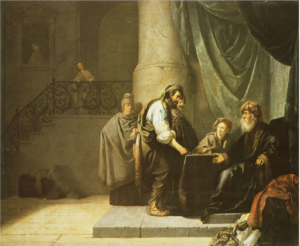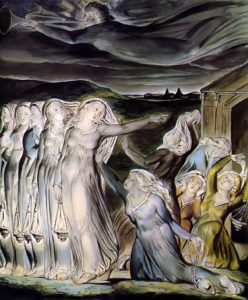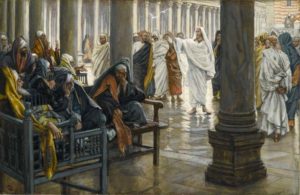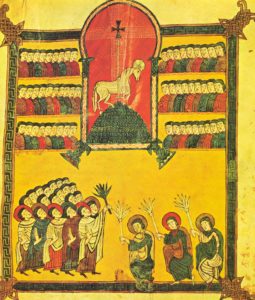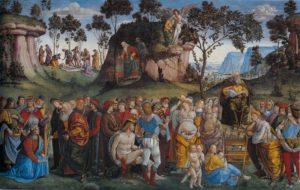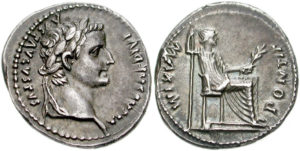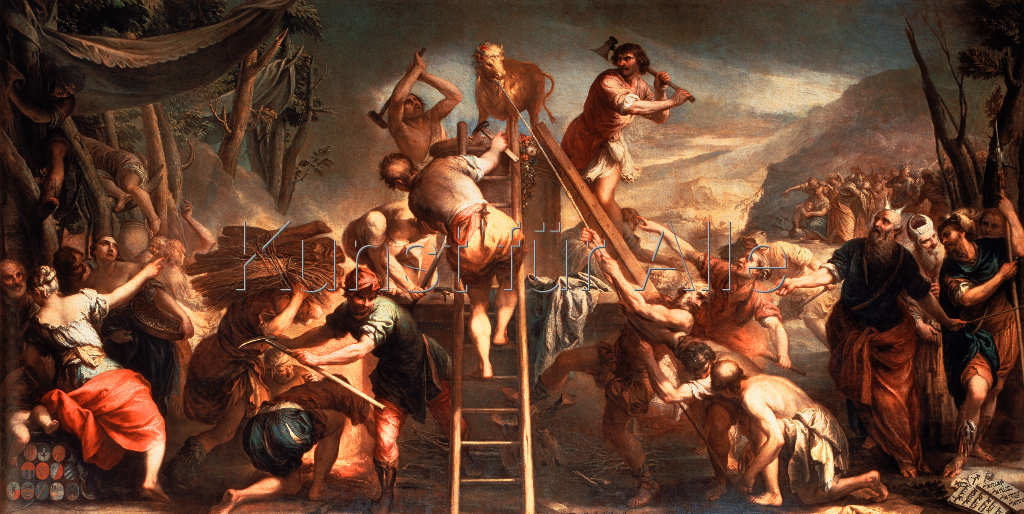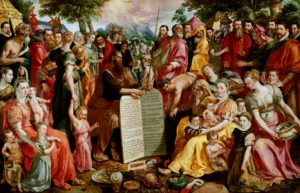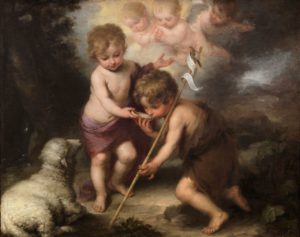Thoughts on Sunday’s Lessons for Nov. 26, 2017
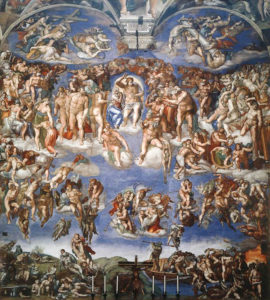
The Last Judgment (1536-1541), fresco by Michelangelo Buonarotti (1475-1564). Sistine Chapel, Rome. (Click image to enlarge.)
The six-month-long Pentecost season comes to its end this week in the festival day known as Christ the King or, for those who prefer more inclusive language, The Reign of Christ. These readings reveal Jesus Christ as a different kind of king than earthly rulers; no traditional patriarch but a loving shepherd caring for the flock. In our first reading, Ezekiel prophesies to the people in exile, using the metaphor of a kingly shepherd feeding and caring for the sheep. Then, in verses we will hear echoed in Matthew’s Gospel, the prophet writes that God will judge the fat sheep and the lean, protecting the lost and weak sheep while destroying the powerful sheep who ravaged them.
Psalm (Track One): Psalm 100
Both Lectionary tracks for Christ the King sing out joy and praise for God, our maker and protector, in verses that are also provided for use in Morning Prayer. Track One is the Jubilate, a call for God’s people and all God’s lands to serve the Lord our God with gladness and song. We are the protected sheep of God’s pasture, joyously singing thanksgiving and praise for God’s everlasting mercy that endures from age to age.
Psalm (Track Two): Psalm 95:1-7a
Does this hymn sound familiar? You’ve probably recited or chanted it as the Venite in Morning Prayer. These verses sing out unalloyed worship and praise, creater and protector of all things, and, in harmony with today’s readings, both king of kings above all gods and loving shepherd who cares for us, the protected sheep of God’s hand.
Second Reading: Ephesians 1:15-23
For the last Sunday in Pentecost, we turn from reading in 1 Thessalonians, perhaps the earliest of Paul’s letters, to Ephesians, a much later epistle that was probably written in Paul’s name by a first century Christian a generation after Paul’s death, not long after the Gospel of Matthew was written. In 1 Thessalonians Paul offered hope that Christ would return soon, while many in the church were still alive. This later letter provides a glimpse of the early church’s evolving understanding of Christ, a vision that we will also see in today’s Gospel: The resurrected Jesus is placed at God’s right hand and given authority over all things in heaven and in the church, Christ’s body on earth.
Gospel: Matthew 25:31-46
Matthew’s long series of parables about the kingdom of heaven now ends with this familiar Gospel. It isn’t always easy to see Jesus in the face of a hungry, thirsty, homeless person, sick and naked and oppressed. But Matthew tells us clearly that this is the way that we make God’s kingdom happen. Then, echoing our first reading, Matthew paints a disturbing picture of the fate that awaits those who fail to find Christ in the hungry and the weak: They earn eternal punishment, a place in the outer darkness that also awaited the slave with the single talent and the foolish bridesmaids. This parable may warn that we ignore Jesus’ call to serve only at our peril. But know, too, that the mighty king who judges us is also the loving shepherd who shows us how we are to love one another.
What are “Track 1” and “Track 2”?
During the long green season after Pentecost, there are two tracks (or strands) each week for Old Testament readings. Within each track, there is a Psalm chosen to accompany the particular lesson.
The Revised Common Lectionary allows us to make use of either of these tracks, but once a track has been selected, it should be followed through to the end of the Pentecost season, rather than jumping back and forth between the two strands.
For more information from LectionaryPage.net, click here.

